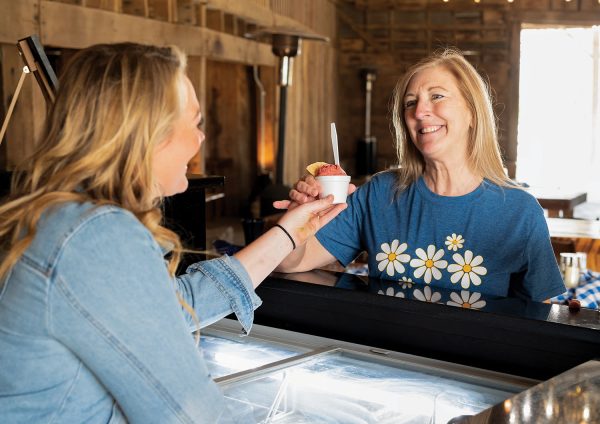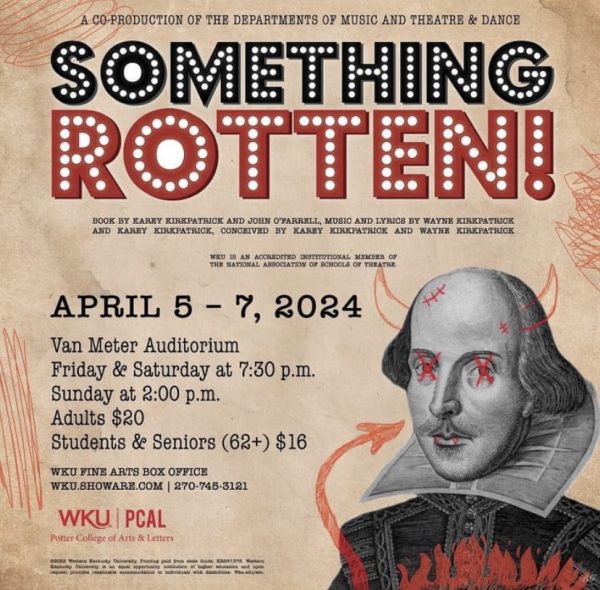Student voice opinions on intersectional feminism
March 25, 2018
Feminism can take shape in a variety of different ideals from body autonomy to equal pay in the workplace. As society has evolved, though, so have different ideals of feminism.
One of these ideals is intersectional feminism, an ideal that is not so familiar to many but that illustrates how discrimination women face is not solely based on gender.
It is a multi-faceted struggle that overlaps the female gender into elements of race, status, ethnicity, religion and sexual orientation. For example, a black lesbian may experience discrimination based on her gender, sexual orientation and race. Even when defined, intersectional feminism holds different weight and importance depending on the individual.
Freshman Kate Fields sees intersectional feminism as important and supports gender equality entirely but says she isn’t sure if she identifies quite under the term of a “feminist.”
“I absolutely support the equality of men and women, but I’ve felt that the modern feminist movement is exclusive in that it doesn’t accept or support women who hold more conservative political views nearly as much as those with liberal views,” Fields said. “I also have never personally experienced overt sexism in any of my academic endeavors, so I’m hesitant to adopt the view of myself as a victim of the patriarchy.”
For some, like junior Ireland Hill, being a feminist is as essential as oxygen. Hill says she believes in feminism in particular because she feels it is what’s right, especially intersectional feminism. Hill adopts these notions based on her own experiences.
“I’ve been raised on the idea of equality,” Hill said. “I never experienced immense sexism, and I am so grateful. However, I live in a society that produces it. I know that females domestically and internationally face the notion of being treated as if they are not equal to their male peers. Feminism is important to me because if I do not stand up for the simple notion that women are equal to men—for example, women doing the same job as a man—they should get paid the same amount for the same job—I sadly don’t know who will.”
On the opposite end of the spectrum, it is important to note that some people may not identify as feminists due to the buzz surrounding the word in contemporary society. Sophomore Ashley Owens says she strays away from identifying as a feminist but still stands for the same ideals in many capacities.
“From what I have come to learn, intersectional feminism is the acceptance of all women of all races,” Owens said. “I completely believe that any woman of any race should be equally considered for an opportunity if they have the right academic and legal requirements. While I may not identify myself as a feminist, I still do and always will support my fellow ladies.”
Some proclaim their support for the cause even when it doesn’t quite apply to them. For Jayden Thomas, freshman and SGA senator, intersectional feminism is important to him, even as a male.
Thomas credits his belief in feminism to many different people who have taught him the value in equality, especially due to him being a member of the LGBTQ community. He believes the struggles faced by minority communities create some overlap with the causes that feminists are fighting for.
“I have been raised by some very powerful female figures, and I am a true believer that they are capable of anything,” said Thomas. “Being a member of many marginalized groups myself, I also know what it is like when these problems overlap. Obviously, I am not a woman within another marginalized group, but I am able to sympathize and believe that men should fight more for gender equality.”
WKU student body president Andi Dahmer’s entire campaign ticket was made of women, with Kara Lowry as administrative vice president and Savannah Molyneaux as executive vice president.
“I support intersectional feminism in that it represents all women,” Dahmer said. “Much of feminism historically has been based around a white female identity, so being intersectional must also encompass all spheres of womanhood. I think a lot of people are turned off by the word ‘feminist,’ but that we shouldn’t be afraid to use the word, as it is defined literally as equality.”
Dahmer said her voice comes from seeing the diversity in women at the Women’s March in Washington, D.C. in 2017. From there, Dahmer noted that she was inspired to be a feminist for all women and people, whether they are stay-at-home moms or the first female president.
“I also think it’s very important to overcome my personal identity and be open to everyone being part of this movement,” she said. “To that extent, it’s important to note that I’m a feminist for all, including those who believe we don’t need feminism.”
Intersectional feminism in essence is fighting for the rights of women in different cross-sections of society: trans women, women of color, women of varying sexual orientations and more.
Features reporter Noah Moore can be reached at 270-745-6291 and [email protected]. Follow him on Twitter at @noah_moore18.














![Students cheer for Senator at Large Jaden Marshall after being announced as the Intercultural Student Engagement Center Senator for the 24th Senate on Wednesday, April 17 in the Senate Chamber in DSU. Ive done everything in my power, Ive said it 100 times, to be for the students, Marshall said. So, not only to win, but to hear that reaction for me by the other students is just something that shows people actually care about me [and] really support me.](https://wkuherald.com/wp-content/uploads/2024/04/jadenmarshall-1200x844.jpg)




![Megan Inman of Tennessee cries after embracing Drag performer and transgender advocate Jasmine St. James at the 9th Annual WKU Housing and Residence Life Drag Show at Knicely Conference Center on April 4, 2024. “[The community] was so warm and welcoming when I came out, if it wasn’t for the queens I wouldn’t be here,” Inman said.](https://wkuherald.com/wp-content/uploads/2024/04/smith_von_drag_3-600x419.jpg)






